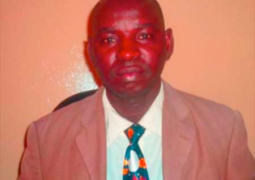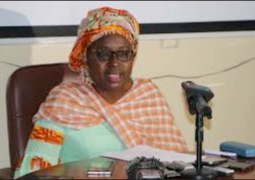
She said the ultimate objective of this project is to improve the living standard of women, by empowering them with training to become entrepreneurs on cross-cutting issues that are relevant to gender and the environment.
Speaking in an interview with this paper, Ms Silvia Liopart Gracia thanked the Global Environment Fund (GEF) small grants funding project for their complementary support, because with the grant they were able to hire an expert in specialize areas to work with them.
“We did many training activities and over 30 Gambians joined us to implement the project together with the association, and the project has been so useful because it gives an overview on the new expertise that we intend to invent.
“From 2013 to date, over 1000 visitors came to the center to see how the renewable energy system is working. Our RE system is a state-of-the-earth system, and not only the best in The Gambia but all over West Africa.”
She said one of the biggest obstacles of RE in The Gambia is the lack of technicians, and that through the GEF grant they are training many women, particularly on RE and improving the curriculum, as well as to teach some tertiary institutions with mainstream gender as a component to enable women become RE technicians and experts.
Ms Gracia said women are the most vulnerable group and their impact in development cannot be underestimated, adding that their plans are to consolidate and to uplift the living standard of women in all areas.
She added that in Mboolo, they take every challenge as an opportunity and, as a beginner, whatever they identify as weakness they want it to be their strength.
She said The Gambia has a very nice policy; “let us implement it and move out from 5 per cent of RE and do as other countries, because sometimes the oil prices increase and oil contributes a lot to climate change.
“The Gambia has wind and sun; so to go for RE is very simple for us compared to other countries which have lesser sun radiation and they are 100 per cent RE; why not The Gambia.”
She articulated on the fact that The Gambia is contributing very small in greenhouse gas, but that is not an excuse because the country is kicking off its development strategy and development.
Every small village could have an RE system that could create income generation and improve the livelihood of people, so that the move for adaptation is going to be higher, she stated.
She advised the youths to be committed to the development of the country, while insisting that climate change could be changed and they have to prepare for this change.
“The youths must stay here and implement the opportunities that we are creating for them, so that the country can develop faster as we wanted it to be.”
Dodou Gaye, a retired expert in RE for UNIDO, said the center came in being as a result of the “back way” to Europe journey from one Malang Sambou, who left The Gambia for Spain.
He said prior to his travelling, Mr Sambou was a qualified teacher from the Gambia College and left with the idea to economically upgrade himself.
While in Barcelona, he met with a Catalonian lady and they got married. The lady was a specialist on environmental management and was working for an NGO called Solidarity Project.
Later two of them fled back home to see what they could contribute to national development, because both of them were blessed with knowledge and education, he said, adding that they then set up Mboolo with the idea to help the poor.
“Mboolo is a charitable and secular organization set up in The Gambia in 2010, as delegation of Africa Mboolo to run the projects in Gambia and Senegal,” Mr Gaye said.
It was no doubt a model center for women’s development by increasing resilience and women’s empowerment in a range of entrepreneurship aspects, he added.
Africa-Mboolo is a mixed association of Gambian-Senegalese-Catalan societies that brings together the commitment of immigrants from Africa to work for the development of African countries, and Catalans who have visited these communities under the principles of respect, autonomy, grassroots participation and sustainability, thus reinforcing the integration of African immigrants in the host towns.
Also to accompany, strengthen and empower communities in The Gambia and Senegal regardless of race, religion or gender.
It focuses on sustainable development strategies, gender equality, citizen participation and co-development, education, health and community development, in order to reduce poverty and North-South inequalities.




